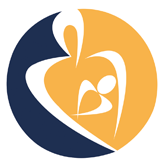Meet the former TEP grant recipients here.
Alumni
“Your reward will be the widening of the horizon as you climb. And if you achieve that reward, you will ask no other.”
― Cecilia Payne-Gaposchkin
Former Recipients

Miranda Loutet
MSc, PhD CandidateMiranda Loutet is a Trainee Bridge Fund (TBF) recipient and an MSc and PhD Candidate in the Epidemiology Division, Dalla Lana School of Public Health, at the University of Toronto / Hospital for Sick Children.
Miranda's project is called ‘In-Facility Lactation and Feeding Support in Low-Resource Settings to Increase Survival Among Small Vulnerable Newborns: Evaluation of a Pilot Study to Implement a Feeding Support Package in Neonatal Intensive Care Units (NICUs) in Tanzania, Malawi and India-Uttar Pradesh’.
Embedded within the ‘Low Birthweight and Preterm Infant Feeding Trial and Supportive Care Package (LIFT-UP)’ study, Miranda will evaluate the pilot study to estimate the effectiveness, feasibility and acceptability of implementing a co-designed, in-facility package to support lactation, feeding, kangaroo mother care, and WASH among low birthweight or preterm infants admitted to the NICU and their mothers in Tanzania, Malawi and India-Uttar Pradesh.
Through being involved in a large consortium, multi-country implementation science project, Miranda will learn skills to fill the gap between policy and deployment and findings from the pilot will inform ideal delivery of the intervention into clinical workflow.
Miranda said: “During my TEP-funded project I aim to gain technical skills to transform evidence into practice, deepen my scientific knowledge, and grow my multidisciplinary international research network to support my career goal of becoming an independent investigator and professor in global maternal and newborn health.”
Miranda will travel to and conduct her research at Ariadne Labs, Harvard T.H. Chan School of Public Health and Brigham and Women’s Hospital, under the primary mentorship of Dr. Katherine Semrau, PhD, MPH, Director of the BetterBirth Program at Ariadne Labs, and the secondary mentorship of Dr. Linda Vesel, PhD, MPH.
Visit Miranda Loutet on LinkedIn
Laasya Devi Annepureddy
PhD StudentLaasya Devi Annepureddy is a Trainee Travel Fund (TTF) recipient and a PhD Student at Dartmouth College.
Laasya's project is called ‘Understanding the Impact of Human Milk Oligosaccharides (HMOs) on Adipocyte Function’.
HMOs are the third largest component of human milk which are associated with growth and metabolic outcomes in infants. However, the effect of HMOs on infant metabolism is poorly understood and understudied.
Studying the effect of HMOs on adipocytes is important for gaining insights into their potential roles in early development, metabolic homeostasis, and immune modulation. Animal models cannot fully mimic HMO effects as they are metabolized and digested differently in humans, emphasizing the need for in-vitro models. This research will close this gap and enhance our understanding of components in human milk and their implications in metabolic disorders.
Laasya will travel to and conduct her TTF project at the University of California San Diego, under the mentorship of Dr. Lars Bode, PhD, Professor of Pediatrics.
Visit Laasya Devi Annepureddy on LinkedIn
Michelle Asbury
MSc, PhD, Postdoctoral AssociateMichelle Asbury is a Trainee Travel Fund (TTF) recipient and an MSc, PhD and Postdoctoral Associate at the Departments of Physiology & Pharmacology and Pediatrics, University of Calgary.
Michell's project is called ‘Systems-Level Repertoire of Human Milk Components as Drivers of Microbial and Immune Development in Preterm Infants’.
Michelle’s research broadly focuses on the nutritional and immune components of human milk and how they shape the developing microbiome and immune system of preterm infants. Using a longitudinal preterm cohort (BLOOM study) of ~400 mother-infant dyads, Michelle will integrate multi-omic (proteomic, lipidomic, metabolomic, and glycomic) human milk data and construct a novel computational tool, called “nutrient trees”, to apply systems biology methods to human milk during her TTF award tenure. She hopes this computational tool will enable researchers in the field to deeply characterize the complexity and inter-relatedness of human milk components and their role in shaping infant development.
Michelle will travel to and conduct her TTF project at the University of Minnesota, under the mentorship of Dr. Abigail Johnson, PhD, RD, Assistant Professor.
Visit Michelle Asbury on LinkedIn
Maheshwar Bhasin
PhD CandidateMaheshwar Bhasin is a Trainee Travel Fund (TTF) recipient and a PhD Candidate at the Larsson-Rosenquist Foundation Centre for Immunology and Breastfeeding, The University of Western Australia.
Maheshwar's doctoral project is called: ‘Neurodevelopmental Impact of Non-Exclusive Colostrum Feeding (NECF) in Infants within First Year of Life’. It aims to investigate the impact of NECF on childhood health, particularly allergies, growth, infections, and neurodevelopment.
Colostrum are tiny drops of milk (containing numerous beneficial compounds) produced in the first three days after birth. Across the globe, one in every three infants receives formula supplementations, potentially missing out on the vital benefits of colostrum. During the exchange to LRF NGN, Maheshwar will explore how this practice of NECF might influence a baby’s neurodevelopment aspect by analyzing the Ages and Stages Questionnaire data collected in the Western Australia’s ORIGINS cohort.
Understanding the impact of NECF would provide evidence to support exclusive breastfeeding in early days and pave a path for long-term strategies to support for infants who would be NECF.
Maheshwar will travel to and conduct his TTF project at the Larsson-Rosenquist Foundation Center for Neurodevelopment, Growth and Nutrition of the Newborn (LRF NGN), University Hospital Zurich, Switzerland, under the mentorship of Prof. Dr. med. Giancarlo Natalucci.
Visit Maheshwar Bhasin on LinkedIn
Michael A. Pitino
PhD, MSc, Postdoctoral ScholarDr. Michael A. Pitino is a Trainee Travel Fund (TTF) recipient and a PhD, MSc, and Postdoctoral Scholar at Oregon State University.
Michael's project is called ‘Characterizing the Cellular Response of Neonatal Enteroids to Simulated Infant Digesta from Donor Human Milk Treated by High-Pressure Processing Versus Holder Pasteurization’.
Michael’s research interests are broadly focused on optimizing the nutritional quality and functionality of bioactive proteins in donor human milk and delineating the downstream impact of processing on infant nutrient digestion, and gut physiology. He is currently examining how high-pressure processing, a novel milk processing technique, impacts intact protein digestion and the release of bioactive peptides using highly sensitive mass spectrometry-based proteomic tools.
Leveraging the skills he plans to gain in culturing infant-derived enteroids (intestinal organoids), Michael will ultimately study the cellular response of the infant gut epithelium (i.e., cell morphology, markers of inflammation, and epithelial barrier function) to processed human milk digested using a dynamic in vitro system simulating preterm infant gut physiology.
Michael will travel to and conduct his TTF project at Oregon Health and Science University, under the mentorship of Dr. Sarah Andres, PhD, Assistant Professor of Pediatrics.
Visit Michael A. Pitino on LinkedIn
Brock Williams
PhD, MSc, RD; Research FellowDr. Brock Williams is a Trainee Travel Fund (TTF) recipient and a PhD, MSc, RD; Research Fellow, at the University of British Columbia.
Brock's TTF project is called: ‘Determining the Presence and Functional Capacity of Dietary Food Allergens in Human Milk’.
There are significant gaps in our understanding of how food allergens in human milk contribute to the development of tolerance or sensitization to dietary allergens during early childhood. Brock aims to perform and develop assays for the detection of common dietary food allergens in human milk, as well as determining their functional capacity. These skills will allow Brock to assess the associations between maternal diet and lifestyle, and the transfer of dietary food allergens into human milk in two distinct cohorts.
Brock will travel to and conduct his TTF project at the University of Rochester School of Medicine, under the mentorship of Professor Kirsi Järvinen-Seppo, PhD MD, Chief of Pediatric Allergy and Immunology.
Visit Brock Williams on LinkedIn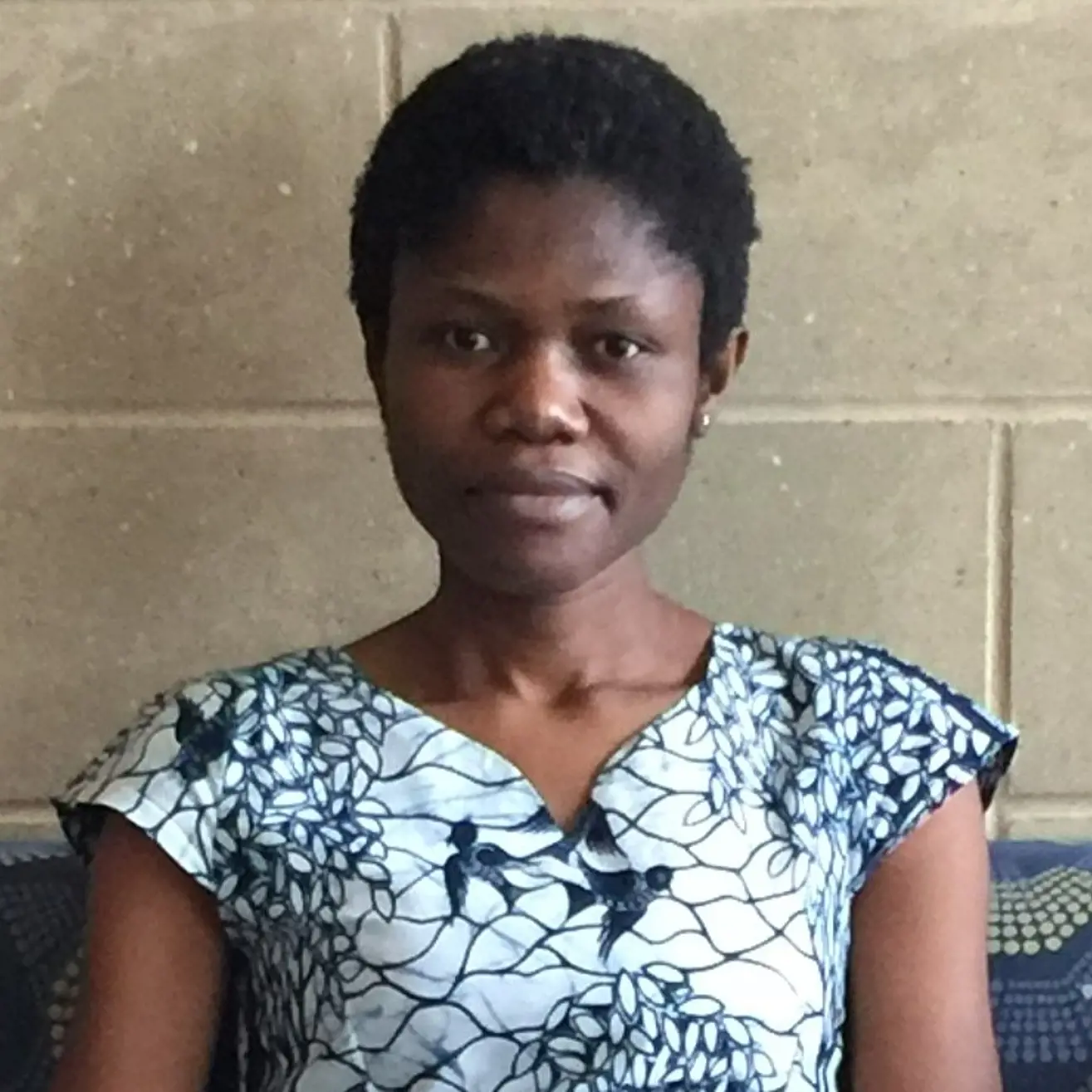
Adwoa Gyamfi
PhD, MPH, BSc., RNDr. Adwoa Gyamfi is a Trainee Bridge Fund (TBF) recpient and PhD, MPH, BSc., RN (with Post Graduate Certificates in Education, Clinical Genetics and Genomics), at the University of Ghana.
She is a Ghanaian with several years of clinical experience and health education in Ghana and the United States. Adwoa's TBF project is called “Designing and testing a community-based lactation counseling model in Ghana: a Trial of Improved Practices”.
She aims to design and test the feasibility of integrating evidence-informed community-based lactation counseling into Ghana’s primary healthcare system. Her primary objectives are to: identify unmet needs in community-level breastfeeding counseling and support in rural Ghana; train lay volunteers as community-based lactation counselors and public health nurses as lactation counseling supervisors; and test the feasibility and acceptability of a community-based lactation counseling model.
Adwoa will conduct her TBF project at the School of Public Health, University of Ghana, under primary mentorship from Professor Richmond Aryeetey, PhD, MPH and secondary mentorship from Dr. Amber J. Hromi-Fiedler, PhD, MPH (Research Scientist, Yale University).
Visit Adwoa Gyamfi on LinkedIn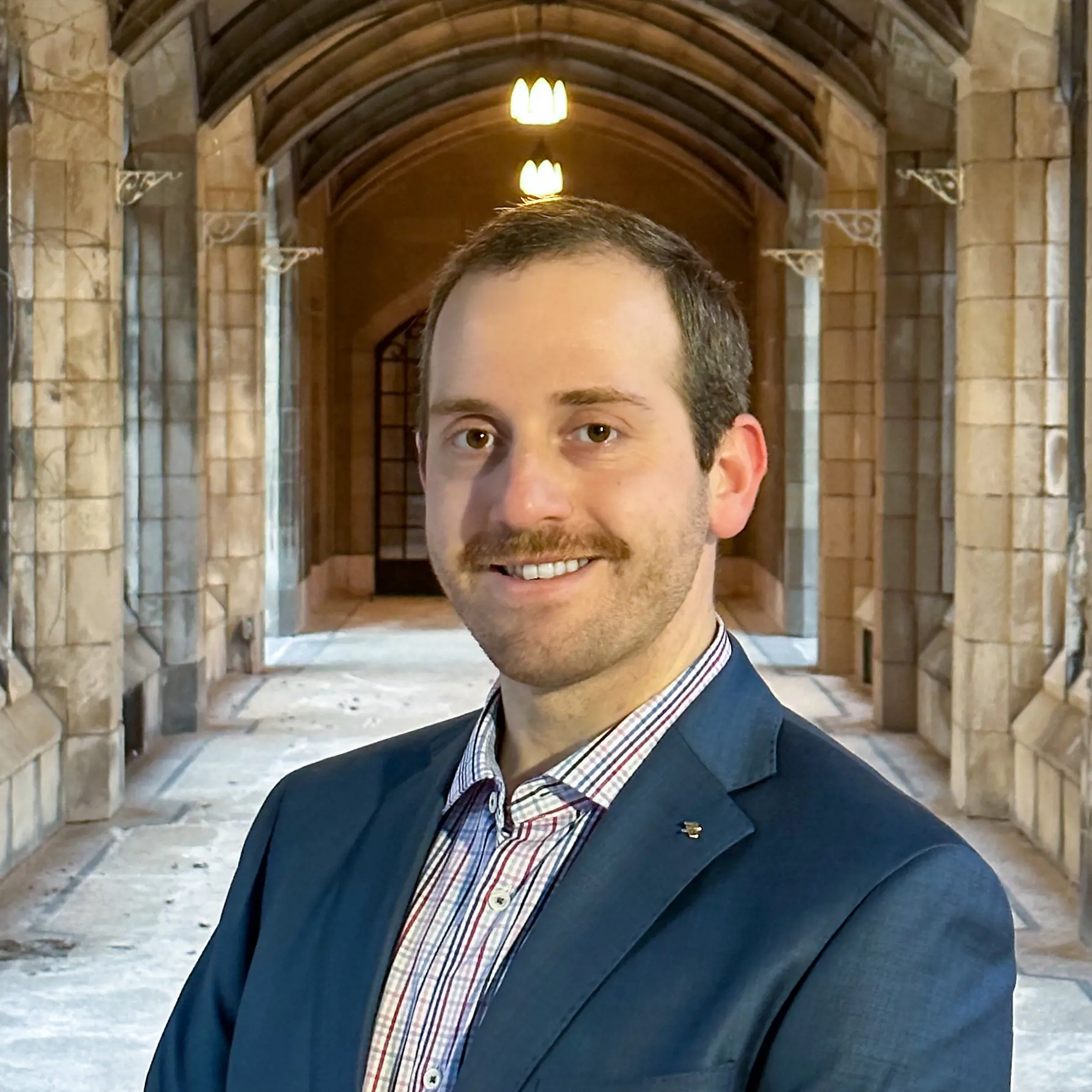
Michael A. Pitino
PhD, MSc., hons. BSc.Dr. Michael A. Pitino is a Trainee Bridge Fund (TBF) recipient and a PhD, MSc., and hons. BSc. at the Department of Nutritional Sciences, University of Toronto / Hospital for Sick Children.
Michael's TBF project is called “Proteomic and peptidomic profiling of donor human milk after high-pressure processing and dynamic in vitro digestion simulating the preterm infant”.
Michael’s research has been focused on maximizing the nutritional quality and bioactivity of donor human milk, towards optimizing acute and long-term health outcomes of vulnerable preterm infants. He has been investigating alternative processing methods for donor human milk pasteurization to improve both milk quality and milk banking policies, while examining the complex interplay between processing and outcomes during and following digestion.
Using highly sensitive mass spectrometry-based techniques, he plans to further investigate the impact of a novel milk processing technique on subsequent protein digestion and bioactive peptide generation using proteomic and peptidomic tools.
Michael will conduct his TBF project at the College of Public Health and Human Sciences, Oregon State University, under the mentorship of Dr. Dave Dallas, PhD.
Visit Michael A. Pitino on LinkedIn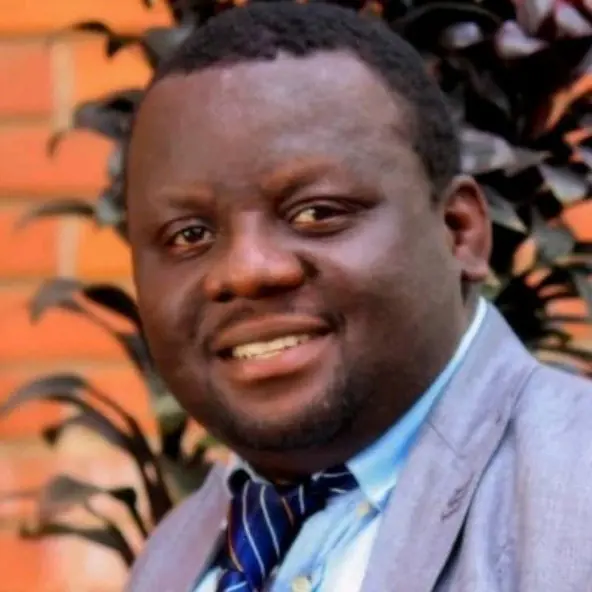
Omobolaji Adewuyi
PhD CandidateOmobolaji Adewuyi, a Trainee Travel Fund (TTF) recipient and a PhD candidate in the Department of Human Nutrition & Dietetics at the University of Ibadan, also holds a Master of Science degree in Human Nutrition & Dietetics from the same institution. His research focuses on assessing the effects of Multiple Micronutrient Supplementation (MMS) on Copper, Iron, Zinc, and Selenium levels in the human milk and serum of lactating mothers, as well as its impact on infant nutritional status. He is also investigating the association between MMS and human milk protein and fat.
Under the mentorship of Prof. Donna Geddes at the University of Western Australia, Omobolaji's TTF grant has significantly enhanced his expertise in human milk minerals, fat and protein analysis, and statistical modelling. This newfound knowledge and research skill set are poised to significantly advance his research capabilities and competences.
In a statement of thanks, Omobolaji expresses deep gratitude to ISRHML and the Family Larsson-Rosenquist Foundation for providing this transformative experience, equipping him with the tools and knowledge to make meaningful contributions to the science of human milk and lactation. This exposure would serve as a solid foundation for his future endeavors and continued growth in the Science of Human Milk and Lactation.
Visit Omobolaji Adewuyi on LinkedIn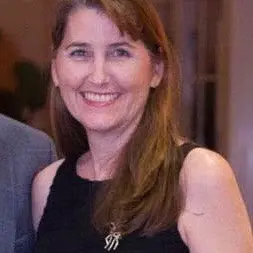
Marion M. Bendixen
PhD, MSN, RN, IBCLC, Assistant ProfessorMarion M. Bendixen is a Trainee Travel Fund (TTF) recipient and PhD, MSN, RN, IBCLC, and Assistant Professor at the College of Nursing, University of Florida.
Marion is a nurse researcher at University of Florida and a clinical nurse/lactation consultant at Winnie Palmer Hospital for Women and Babies. Her TTF project is called “The influence of maternal health on human milk biomarkers of secretory activation in pump-dependent mothers of critically ill infants”.
She aims to determine whether maternal health conditions (diabetes, hypertension, obesity) are associated with differences in mother’s milk biomarkers of secretory activation (SA) and milk volume in pump-dependent mothers of critically ill infants. She plans to gain laboratory and statistical skills analyzing previously collected milk samples for protein, citrate, lactose, macro- and trace elements (markers of SA) to evaluate variations of human milk composition, essential for optimization of nutrition and growth of infants.
Marion will travel to and conduct her TTF project at the School of Molecular Sciences, The University of Western Australia, under the mentorship of Professor Donna Geddes, PhD.
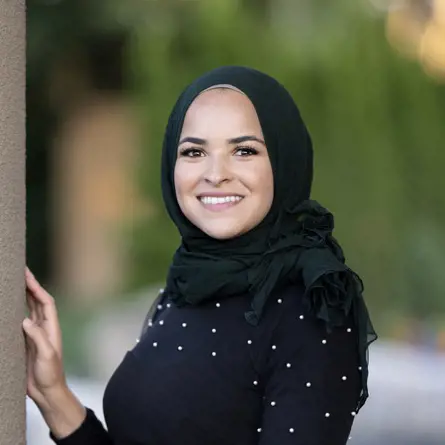
Sara Shama
MSc, RD, registered dietitian, PhD candidateSara Shama is a Trainee Travel Fund (TTF) recipient and MSc, RD, registered dietitian, and PhD candidate at the University of Toronto / Hospital for Sick Children.
Her TTF project is called “Understanding the impact of human milk oligosaccharides on the microbial colonization of very low birth weight infants”.
Sara’s research focuses on understanding the impact of the mother’s milk microbiota and oligosaccharides on the preterm infant gut microbiota. She aims to learn human milk oligosaccharide (HMO) analyses and gain insights into novel bioinformatic approaches. These skills will allow her to explore the impact of HMO intake on the microbial colonization of preterm infants.
Ultimately, she hopes to provide foundational knowledge that can be used towards rehabilitating perturbed gut microbiomes and improving the clinical outcomes of preterm infants.
Sara will travel to and conduct her TTF project at the University of California San Diego, under the mentorship of Professor Lars Bode, PhD.
Visit Sara Shama on LinkedIn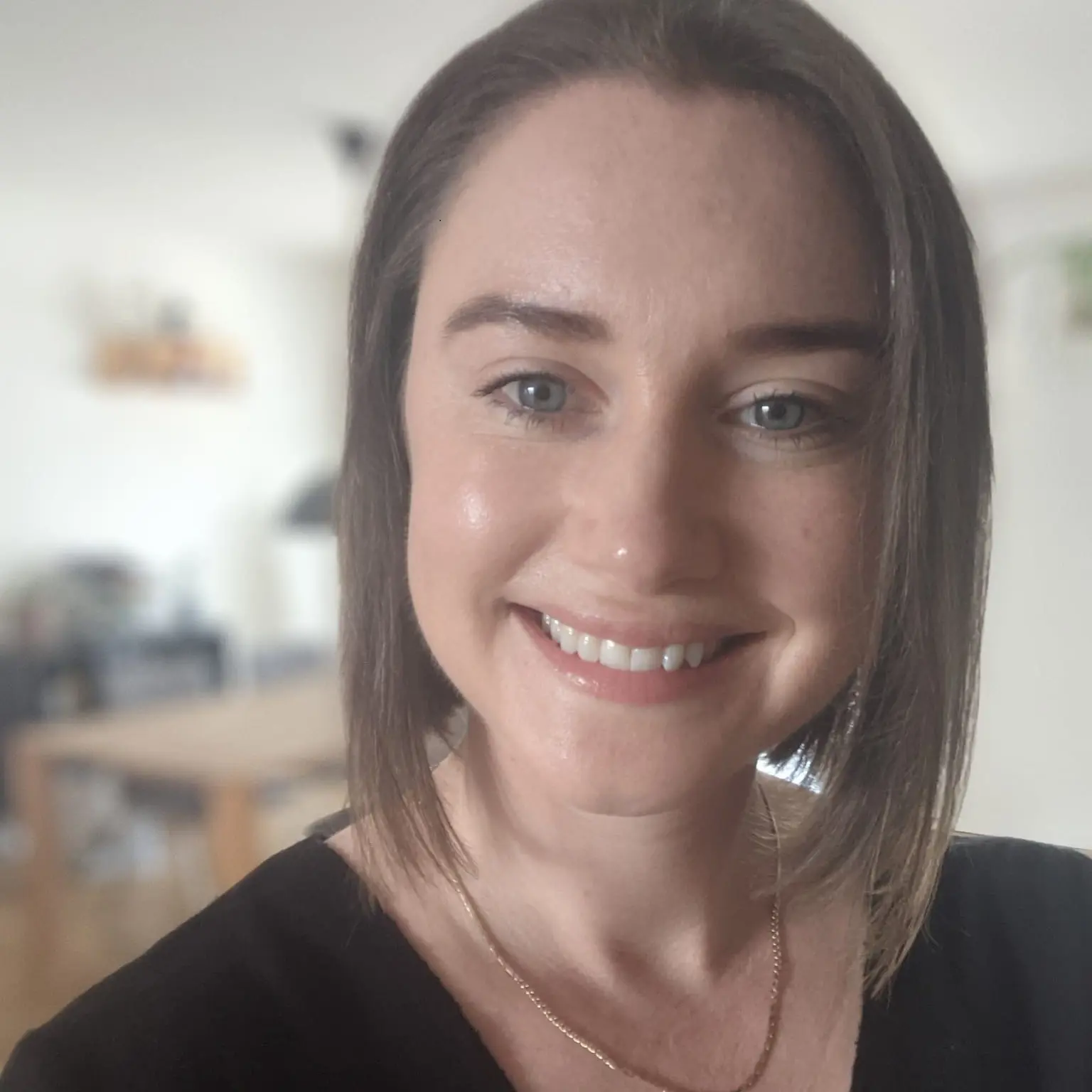
Jordyn Wallenborn
Phd, MPHJordyn Tinka Wallenborn, PhD, MPH, Trainee Bridge Fund recipient, is a postdoctoral researcher at the Swiss Tropical and Public Health Institute (Swiss TPH). She holds a Bachelor of Science in Community Health from Minnesota State University Moorhead, a Master’s in Public Health with a concentration in infectious disease management from North Dakota State University, and a PhD in epidemiology from Virginia Commonwealth University. Jordyn's research focuses on the mother, infant, and human milk triad with a global perspective.
Jordyn's TEP Trainee Bridge Fund project will allow her to partner with internationally recognized researchers Drs. Christopher Stewart, Watcharin Loilome, and Günther Fink to assess the impact of human milk on child gut microbiota and growth through an integrative analysis of bioactive micro- and macro-nutrient factors. The project will draw from a community-centered pilot randomized control trial she is currently conducting that aims to increase exclusive breastfeeding rates in Lao People’s Democratic Republic (Lao PDR).
In a statement of thanks, she said, “I am excited to start working with and learning from Dr. Christopher Stewart, Watcharin Loilome, and Günther Fink; and am thankful for their invaluable support on this application. I would also like to personally thank the ISRHML committee and the Family Larsson-Rosenquist Foundation for selecting my application and supporting my research career in human milk and lactation. I am honored to be selected and look forward to providing critical and novel data on the relationship between the infant gut microbiome and child growth, and human milk composition.”
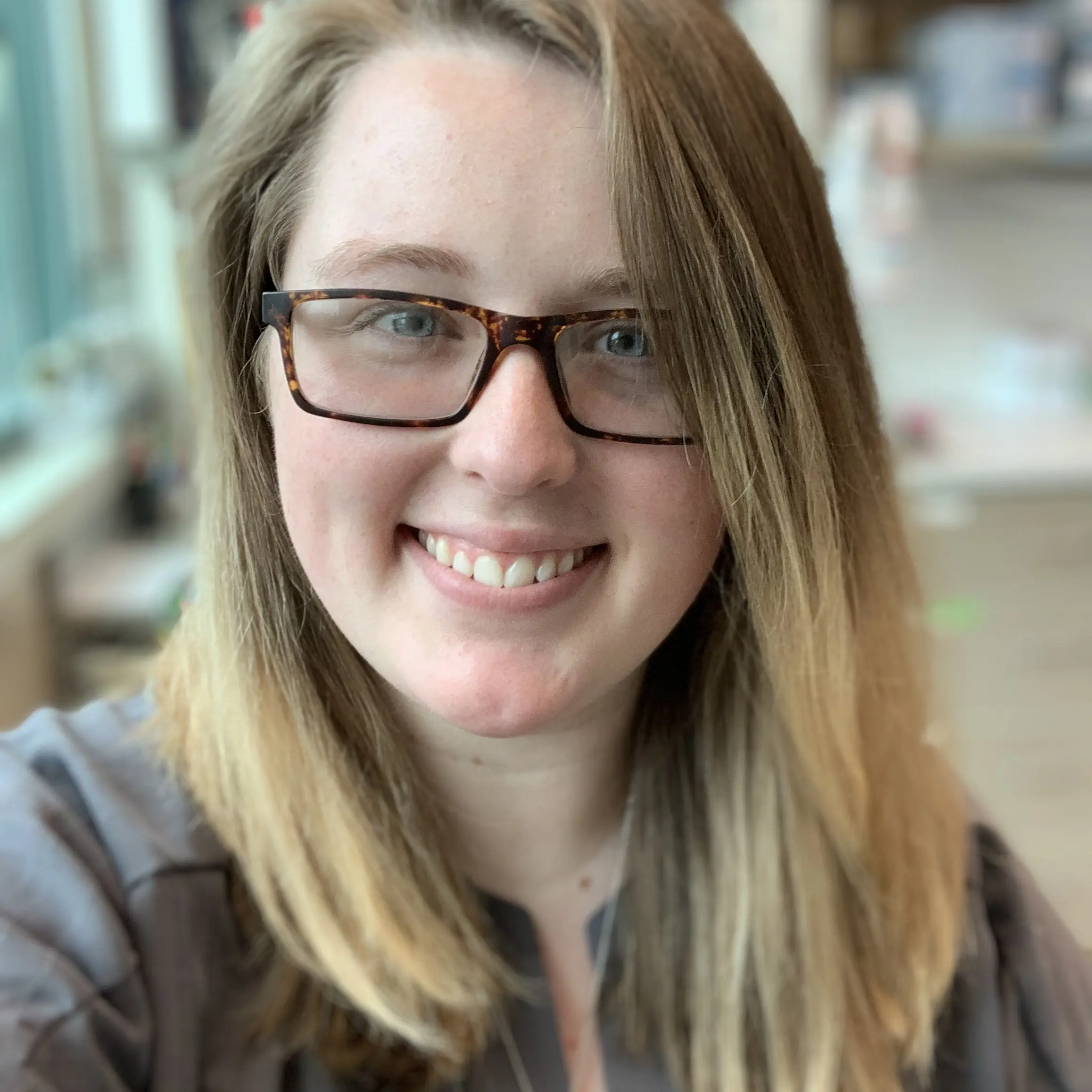
Alexandra Gogel
Alexandra Gogel, Trainee Travel Fund recipient, is a PhD candidate in the Department of Animal, Veterinary, and Food Sciences at the University of Idaho. She holds a Bachelor of Science in Zoology from Washington State University. Her research is focused on exploring human milk collection methods and the associated variation on components including the milk microbiome and lipids. She also researches the association of the human milk microbiome to infant and maternal health.
Alexandra's TEP Trainee Travel Fund grant enabled her to learn the methods required for proteomic analysis and explore variations in the milk proteome over time by studying with Dr. David Dallas at the University of Oregon, USA.
In a statement of thanks, Alexandra extended a heartfelt thank you to the ISRHML and Family Larsson-Rosenquist Foundation Trainee Expansion Program for this opportunity to expand her research experience in the field of human milk and lactation.
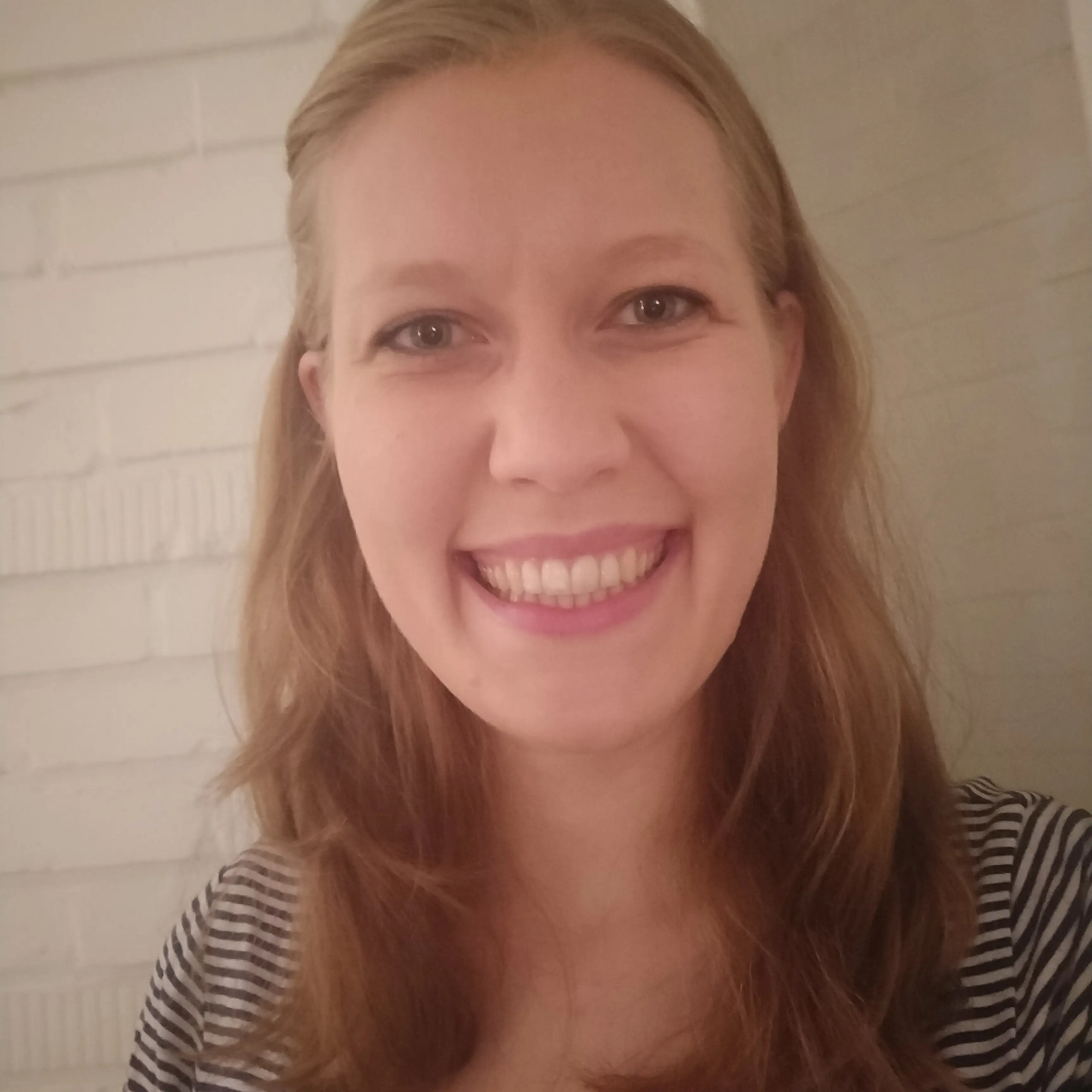
Johanne Spreckels
Johanne Spreckels, Trainee Travel Fund recipient, is a PhD candidate at the University Medical Center Groningen, the Netherlands. She holds a Bachelor of Science degree in Biomedical Sciences from the Philipps University of Marburg, Germany, and a Master’s in Biomedical Sciences from Linköping University, Sweden. Her research focuses on the effect of probiotics on the gut microbiota of preterm infants, particularly how maternal and environmental factors affect breastmilk microbiota and human milk oligosaccharide composition.
Johanne's TEP Trainee Travel Fund grant enabled her to visit Christopher Stewart’s lab at Newcastle University in England. During her stay, she learnt how to work with infant gut organoid models to characterize the function of breast milk components, selected based on her first findings in the Dutch birth cohort Lifelines NEXT cohort.
In a statement of thanks, she said, “I am very thankful to ISHRML and the Family Larsson-Rosenquist Foundation for the opportunity to visit Dr. Stewart’s lab and learn how to follow up my study with functional work in organoids.”
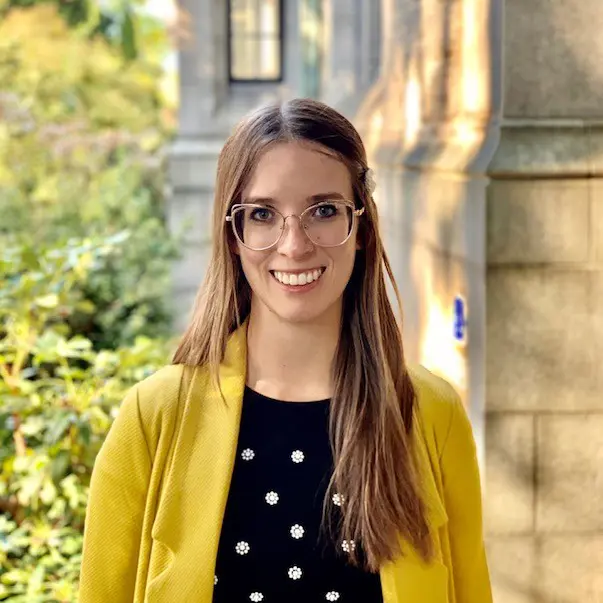
Kelsey Cochrane
RD, BSc.Kelsey Cochrane, RD, BSc, Trainee Travel Fund recipient, is a registered dietitian currently working toward a PhD in Human Nutrition at the University of British Columbia. She holds a Bachelor of Science degree in Nutrition from the University of Saskatchewan. Her research interests include developmental origins of disease, establishment of epigenetic marks, and optimization of maternal and infant diet, specifically in supplementation of folic acid vs folate in low-risk pregnant women.
With her TEP Trainee Travel Fund grant, Kelsey worked with Dr. Lars Bode, a renowned global expert and influential leader in human milk research, to obtain specialized training at the University of California San Diego, USA.
In a statement of thanks, she said, “With the Trainee Travel Fund, I will take my first steps in becoming an academic scholar in the field of breastmilk research. Thank you, selection committee, for honoring me with this award, and helping me set the stage for my future career as a Clinician Scientist in public health nutrition research.”
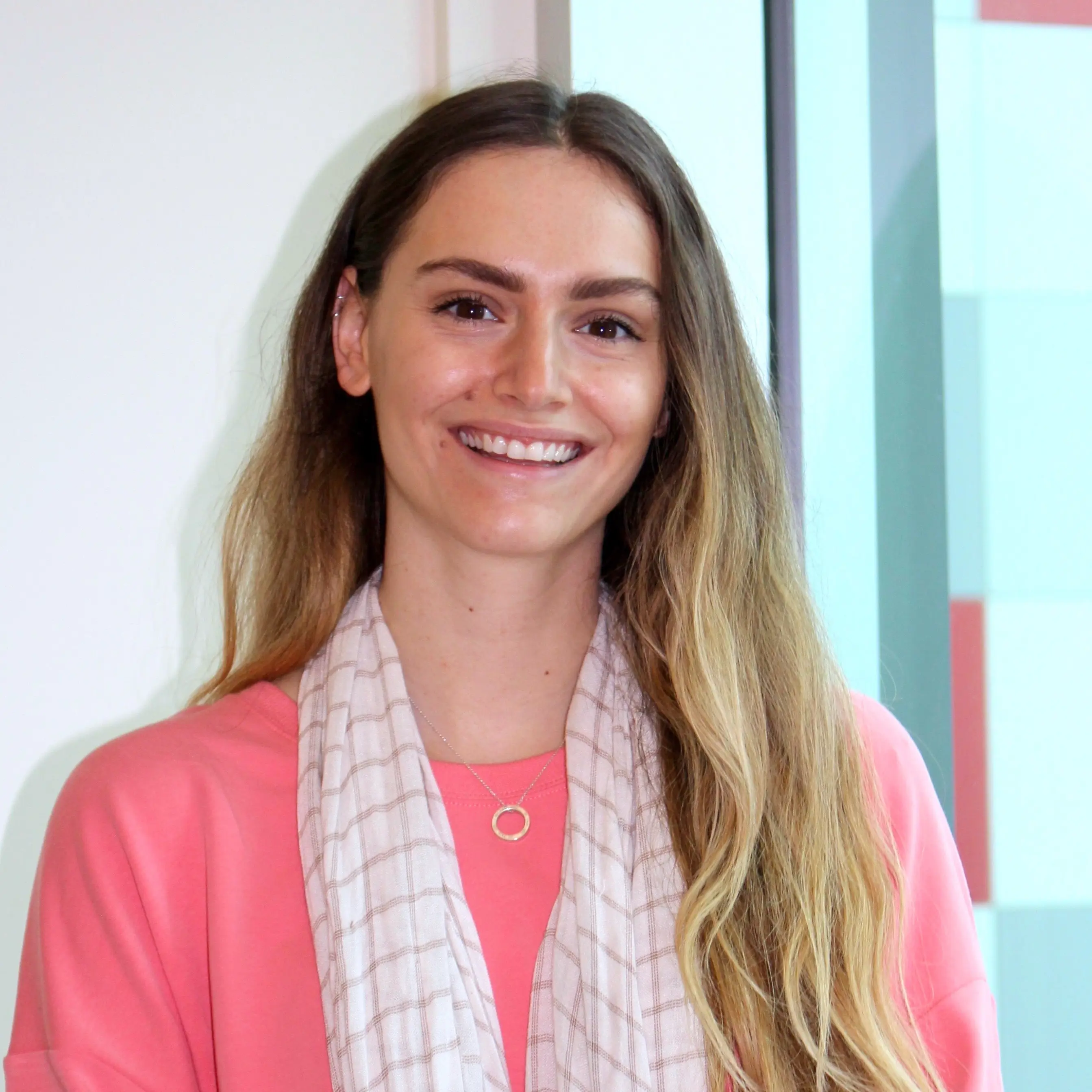
Natalie Scime
Natalie Scime, Trainee Travel Fund recipient, is a PhD candidate and Canadian Institutes of Health Research (CIHR) Canada Graduate Scholar specializing in Epidemiology at the University of Calgary, Alberta, Canada. She holds a Bachelor of Health Sciences degree and a Master’s in Health and Rehabilitation Sciences from Western University. In her research, she uses diverse datasets to study the interrelationships between reproductive factors and women’s health across their lifespan.
With support from her TEP Trainee Travel Fund grant, Natalie lead a project investigating whether human milk composition is associated with mothers’ long-term cardiometabolic health under the mentorship of Dr. Meghan Azad at the University of Manitoba, Canada.
In a statement of thanks, she said this experience will enable her to develop expertise in the biology of lactation, management of human milk samples, and analysis of complex biological datasets as a complement to her existing training in population health and life course epidemiology.
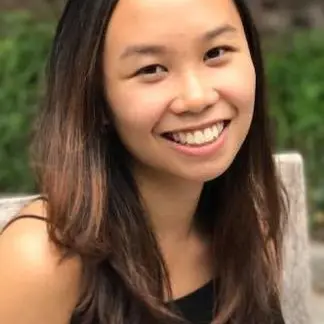
Nina Juntereal
BSN, RNNina Juntereal, BSN, RN Trainee Travel Fund recipient, PhD candidate in Nursing and Hillman Scholar in Nursing Innovation at the University of Pennsylvania. She obtained her Bachelor of Science in Nursing with a minor in Nutrition from the University of Pennsylvania. Her research interests focus on lactation related outcomes among diverse childbearing families and critically ill infants. Her dissertation research explores the role of antenatal milk expression, the expression of colostrum during the late third trimester of pregnancy and its relationship to the development of milk supply and secretory activation. She collaborates with the Children’s Hospital of Philadelphia to advance the science of lactation for mothers of infants prenatally diagnosed with congenital anomalies.
The TEP Trainee Travel Fund grant will give Nina the opportunity to analyze collected milk samples from mothers who practiced antenatal milk expression for human milk biomarkers and generate effect sizes to inform the feasibility to conduct experimental studies on antenatal milk expression. She will work alongside Dr. Donna Geddes and her team at the University of Western Australia.
In a statement of thanks, she said she is thrilled to receive this award and is thankful to the ISRHML and Family Larsson-Rosenquist Foundation Trainee Expansion Program for this opportunity.
Nina's publications can be accessed here:
https://scholar.google.com/citations?user=goPfXQ8AAAAJ&hl=en
Visit Nina Juntereal on LinkedIn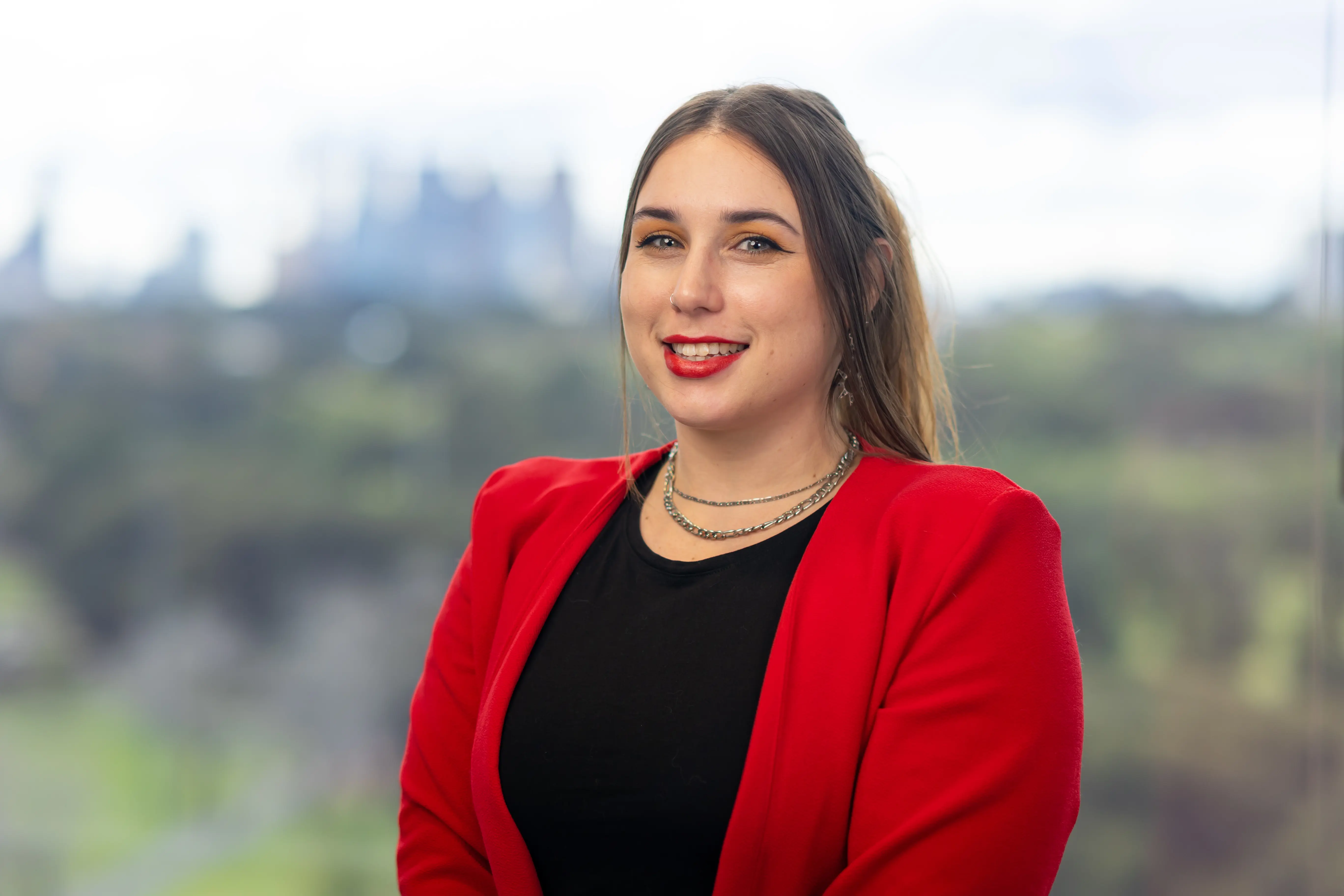
Alexandra George
PhDAlexandra George, PhD, Trainee Bridge Fund recipient, has completed her PhD in human milk biochemistry at The University of Western Australia. Prior to this, Alexandra completed her Bachelor of Science with Honors (University of Western Australia) and a Bachelor of Medical Laboratory Science (University of Otago), always with a focus on human health and improvement of technology for understanding, diagnostics and treatment. Human milk and lactation science has quickly become Alexandra's key research interest, an area where there is extraordinary potential to improve human short- and long-term health outcomes. The Trainee Bridge Fund allowed Alexandra to conduct research at the Baker Heart and Diabetes Institute alongside metabolomics, obesity and diabetes experts. There she is exploring potential bioactive lipids of human milk and further integrating human milk and lactation science into diabetes and obesity research.
You can access the publication resulting from her TBF project here: IJMS | Free Full-Text | The Role of Human Milk Lipids and Lipid Metabolites in Protecting the Infant against Non-Communicable Disease (mdpi.com)
Find her other publications here: Alexandra George - Google Scholar
Visit Alexandra George on LinkedIn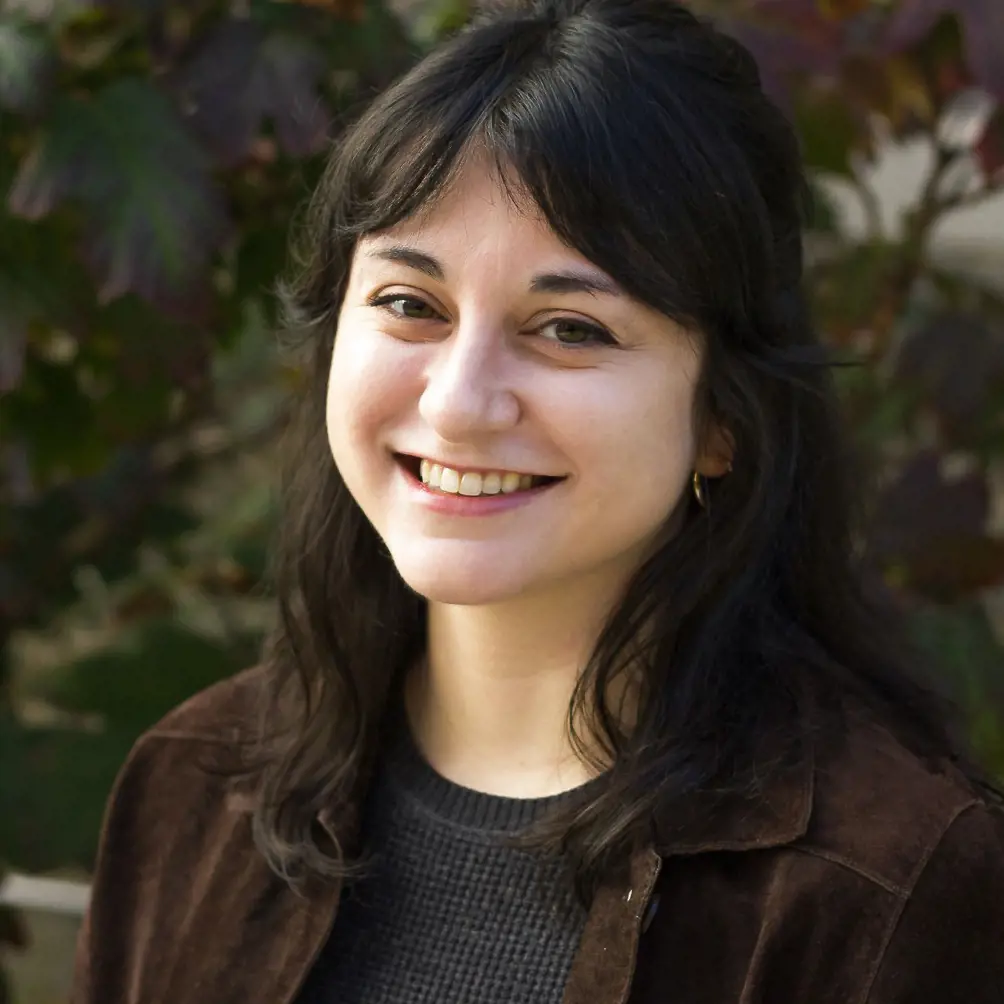
Katherine Daiy
PhD CandidateKatherine Daiy is a PhD Candidate in Anthropology at Yale University and a recipient of the Trainee Travel Fund (TTF). She is a biocultural anthropologist interested in how local social and nutritional environments shape human health through the early life microbiome. Her research is centered on populations experiencing urbanization, and she works primarily in Samoa in the South Pacific region.
Under the mentorship of Drs. Janet Williams, Michelle McGuire and Mark McGuire at the University of Idaho, Katherine's TTF grant has explored how in Samoa, maternal dietary patterns in the postpartum period influence the human milk and infant fecal microbiome composition in Samoa, where a nutrition transition and lifestyle changes have resulted in a gradient of dietary patterns throughout the islands. This work is a component of her dissertation, and she hopes to contribute to understanding early life microbiome development in populations experiencing rapid social, economic, and epidemiological change.
Visit Katherine Daiy on LinkedIn
Alexandra George
PhDPast TEP grant recipient Alexandra George, PhD, currently working as a postdoctoral researcher at Baker Heart and Diabetes Institute in Melbourne, Australia, received a Trainee Travel Fund (TTF) grant in 2019. The grant enabled Alexandra to travel to Singapore, from the University of Western Australia, and work with collaborators at the Singapore Lipidomics Incubator research group of the National University of Singapore. During her short-term work in Singapore, Alexandra had the opportunity to learn new mass spectrometry methods for investigating the human milk lipidome, as well as share existing knowledge on human milk lipids. In addition to the new skills she developed, the experience confirmed for her that her research is important both to her personally and to the world.
Following the completion of her TTF experience, Alexandra applied for and was awarded a Trainee Bridge Fund grant in 2020.
About her TTF experience, she said:
“Without the TTF this trip would not have been possible. I took samples from my Australian cohort along with me and we obtained some very exciting results together, which will be published very soon. From this experience I have gained new collaborators and friends, shared and gained knowledge, and have since been invited to speak about human milk lipids at a conference in Singapore.”
Alexandra’s TTF-enabled work contributed to the study Healthy Breastfeeding Infants Consume Different Quantities of Milk Fat Globule Membrane LIpids, published in Nutrients in July 2021 (Nutrients | Free Full-Text | Healthy Breastfeeding Infants Consume Different Quantities of Milk Fat Globule Membrane Lipids (mdpi.com))
We recently had the opportunity to do a Q&A with Alexandra. Here are her answers in her own words:
Q1: What is your current research area?
My research focuses on identifying human milk lipids that are bioactive and involved in the benefits associated with human milk and breastfeeding, specifically reduced diabetes and obesity risk. Despite all the incredible human milk research in progress around the world, we do not yet completely understand the mechanisms through which human milk exerts all the positive short- and long-term benefits for the newborn infant. This is what I aim to contribute to with my work.
Q2: How has the TEP grant impacted your research?
During my PhD studies the TEP TTF grant allowed me to travel to Singapore to conduct collaborative research at the National University of Singapore. Full immersion in a new place, experiencing new scientific techniques and discussing new topics every day for three months enhanced my research in many ways. In addition to the new skills that I developed, my existing scientific knowledge was improved beyond what I ever thought possible. This experience also confirmed that I am involved in research that is both important to the world and to myself.
Q3: What new skills have you developed as a result of your TEP grant experience? What existing skills have you enhanced?
One area I gained enhanced skills in is collaboration, something often not developed during PhD studies (or certainly not to the extent I was given). I now feel confident to plan, communicate with, and organize other scientists in order to develop and optimize a project. These skills have also proven invaluable in project management.
Q4: Can you express what the TEP grant means to you and your research?
I continue to use the skills and knowledge that I gained during my TEP TTF program every day since my trip to Singapore. Human milk lipidomics and other compositional analyses are not simple and require in depth troubleshooting, method development, knowledge and collaboration. I benefit everyday in my research from the TEP TTF program.
Q5: What piece of advice would you give a TEP grant applicant?
To all future TEP grant applicants, in a world where research is so diverse and funding is so competitive, the TEP is an incredible opportunity for you to receive funding specifically for human milk and lactation research. Don’t be afraid to ask for guidance and support from past awardees or members of ISRHML!
Find her other publications here: Alexandra George - Google Scholar
Visit Alexandra George on LinkedIn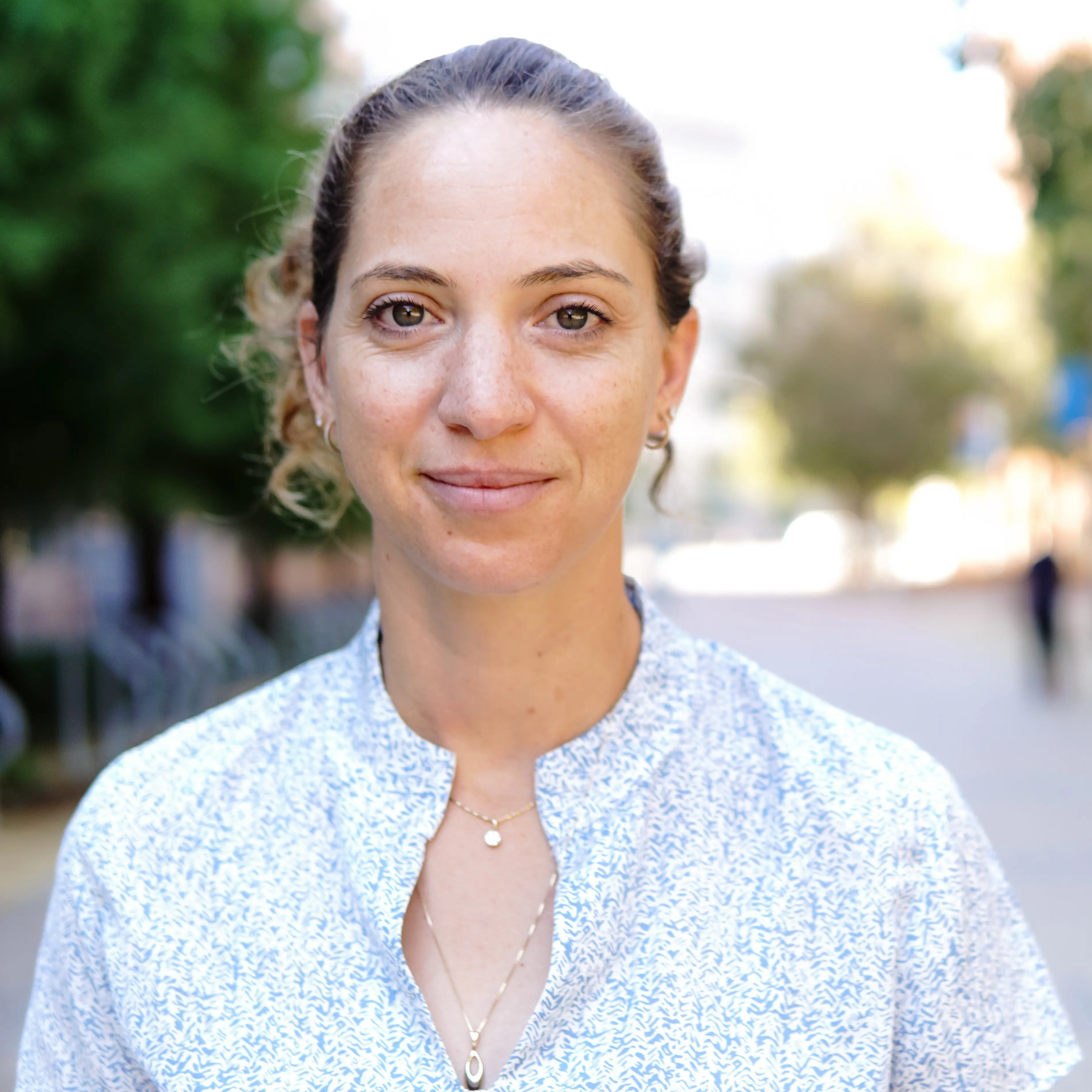
Yarden Golan
PhDYarden Golan Maor, PhD, Trainee Bridge Fund recipient, is a molecular nutrition scientist. After completing her Bachelor of Nutrition Science with Honor, she started to study for a PhD degree under the supervision of Prof. Assaraf at the Technion (Isreal Institute of Technology, Haifa, Israel). Her PhD research focused on studying the transport mechanism of zinc into breastmilk and how mutations in the Zinc transporter 2 (ZnT2) may lead to Transient neonatal zinc deficiency (TNZD) in exclusively breastfed infants. During her PhD Yarden also developed a genomic test for early diagnosis of TNZD using cells that are present in the mother's breastmilk. Yarden started her post-doc research under the mentorship of Prof. Nadav Ahituv from the University of California San Francisco where she will continue to discover the effect of genetic variations on human breastmilk production and components.
Yarden's publication can be accessed here:
https://scholar.google.com/citations?hl=en&user=NG2ZfLgAAAAJ
Visit Yarden Golan on LinkedIn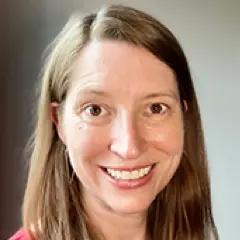
Stephanie L. Martin
PhDPast TEP grant recipient Stephanie L. Martin, PhD, currently an assistant professor in the department of nutrition at the Gillings School of Global Public Health at the University of North Carolina in the United States, received a Trainee Bridge Fund (TBF) grant in 2018. The grant enabled Stephanie to travel to Moshi, Tanzania, to collaborate with faculty from Kilimanjaro Christian Medical University College.
During her work in Tanzania, she had the opportunity to serve as the principal investigator in a study of infant feeding practices of women working in the informal sector in Moshi. The experience taught her about the importance of building relationships and managing research.
About her experience, she said:
“The TEP grant allowed me to expand my research to focus on exclusive breastfeeding and lactation. I am so grateful for the opportunity to examine this topic and develop new collaborations. I now have several studies focused on breastfeeding and lactation research. We plan to build on our findings from this research to pursue additional funding, which would not have been possible without the TEP grant.”
Stephanie and her collaborators have presented their findings at conferences this year and are preparing manuscripts for publication. She presented her work at the American Society for Nutrition’s annual meeting Nutrition 2021 and her collaborator, Melina Mgongo from KCMUCo, just presented findings at the ISRHML conference.
(Link: https://academic.oup.com/cdn/article/5/Supplement_2/781/6293060)
We recently had the opportunity to do a Q&A with Stephanie. Here are her answers in her own words:
Q1: What is your current research area?
My research focuses on the design, implementation, and evaluation of behavioral interventions to improve maternal and child nutrition, including infant feeding. My TEP-funded research focused on infant feeding practices of women who work in the informal sector in urban Tanzania.
Q2: How has the TEP grant impacted your research?
It allowed me to establish a new research collaboration with faculty from Kilimanjaro Christian Medical University College and supported our research to examine the experiences of infant feeding among women working in the informal sector in Moshi, Tanzania. It also highlights the importance of working with wonderful partners, my collaborators from KCMUCo have been so wonderful to work with throughout this project.
Q3: What new skills have you developed as a result of your TEP grant experience?
What existing skills have you enhanced? This was the first study where I was the PI of a study. I learned a tremendous amount about building relationships, managing research, and working on a project from proposal development through dissemination. It provided an opportunity to enhance my communication skills and gave me opportunities to strengthen my mentoring skills since several undergraduate and graduate students have participated in different phases of this study.
Q4: Can you express what the TEP grant means to you and your research?
The TEP grant allowed me to expand my research to focus on exclusive breastfeeding and lactation, since most of my research had previously focused on complementary feeding and maternal nutrition. I am so grateful for this funding and the opportunity to examine this topic and develop new collaborations. I have been able to build on what I have learned and now have several studies focused on breastfeeding and lactation research. We plan to build on our findings from this research to pursue additional funding, which would not have been possible without the TEP grant.
Q5: What piece of advice would you give a TEP grant applicant?
I would encourage people who are not successful the first time to resubmit. The first year I applied I was not successful, but I made revisions based on reviewer feedback and was successful the second time. Also, work with your mentors during the proposal development phase, their guidance can be so helpful.
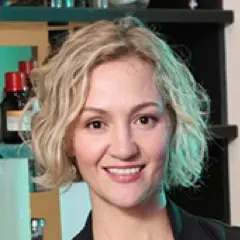
Sarah Reyes
PhD, Msc., MSL-certPast TEP grant recipient Sarah Reyes, PhD, Msc., MSL-cert, currently a regulatory affairs specialist and human milk scientist at Prolacta Bioscience in the USA, received a Trainee Travel Fund (TTF) grant in 2017. Her TTF grant enabled Sarah to travel to the University of Idaho and gain hands-on experience in microbiome analysis, bioinformatics, and computational techniques needed to study the human milk microbiome.
During her short-term work in Idaho, Sarah learned protocols for extracting DNA, Ribosomal RNA (rRNA) analysis, amplicon quantification, and pooling. She credits the experience as helping her realize there is no right way to analyze microbiome data, but there are multiple wrong ways to avoid.
About her experience, she said:
“Working at the University of Idaho as a PhD candidate, my role felt more like that of a collaborator than that of a student. The Trainee Travel Fund experience has led to a productive collaboration from which we expect multiple manuscripts.”
Sarah's TTF-enabled work culminated in her doctoral dissertation Bacterial composition of human milk pumped and stored in real-life conditions: A randomized, controlled investigation, published by Cornell University in December 2019.
(Link to PDF or online full-text dissertation: https://ecommons.cornell.edu/bitstream/handle/1813/70093/ReyesParedes_cornellgrad_0058F_11828.pdf?sequence=1)
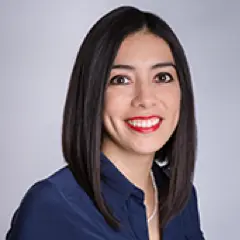
Adriana Gaitán
PhDPast TEP grant recipient Adriana Gaitán, PhD, currently a scientist and human safety toxicologist at Procter & Gamble in the USA, received a Trainee Travel Fund (TTF) grant in 2017. The grant enabled Adriana, a Guatemalan native, to travel to Boston, Massachusetts, and collaborate with colleagues at the Center for Drug Discovery at Northeastern University. During her short-term work in Boston, she learned the methodology for extracting and processing breast milk samples, and she participated in the endocannabinoid purity check of standards and analysis of standard curves prior to sample analysis. She also was able to observe plasma extraction, process data, and calculate different concentrations of the endocannabinoid metabolome.
About her experience, Adriana said:
“Having the opportunity to visit another laboratory has expanded my knowledge and broadened my research experiences. The data generated in this project will contribute to a better understanding of how the endocannabinoid metabolome might be affected by maternal nutrition status and how it might modulate infant health.”
Through her TTF journey, Adriana was able to experience first-hand how different disciplines work together to gain a better understanding of biological compounds. Her efforts supported reestablishment of collaborative work between the Center for Drug Discovery at Northeastern University and Louisiana State University that continued into future projects.
Adriana’s TTF-enabled work culminated in the study Endocannabinoid Metabolome Characterization of Transition and Mature Human Milk, published in Nutrients in September 2018.
Visit Adriana Gaitán on LinkedIn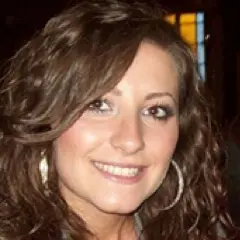
Kozeta Miliku
MD, PhDPast TEP grant recipient Kozeta Miliku, MD, PhD, currently postdoctoral fellow at McMaster University in Hamilton, Ontario, Canada, and a clinical science officer in the CHILD Cohort Study, received a Trainee Travel Fund (TTF) grant in 2017. While she was living in the Netherlands, Kozeta's TTF grant enabled her to travel to Canada to work with colleagues at the University of Manitoba on the Canadian Healthy Infant and Longitudinal Development (CHILD) study data.
During her short-term work in Canada, Kozeta gained knowledge on human milk components, especially human milk oligosaccharides (HMOs). She developed new statistical skills required to link and analyze complex biological datasets with large longitudinal clinical datasets. Perhaps most importantly, she also established key relationships with mentors and collaborators with whom she still works regularly today.
Following the completion of her first TTF experience, she applied for and was awarded a second TTF grant in 2019.
About her experience, Kozeta said:
“This was a wonderful experience. I want to thank ISRHML for this great opportunity. Gaining experience with HMO analytical techniques and exploring important research questions in the developmental origins of health and disease (DOHaD) field can lead to knowledge, and that can help in developing and implementing public health policies and clinical protocols in infant food allergies.”
Kozeta's TTF-enabled work contributed to the study Integrated Analysis of Human Milk Microbiota With Oligosaccharides and Fatty Acids in the CHILD Cohort, published in Frontiers in Nutrition in May 2019.
(Link to PDF or online full-text study: https://www.frontiersin.org/articles/10.3389/fnut.2019.00058/full)
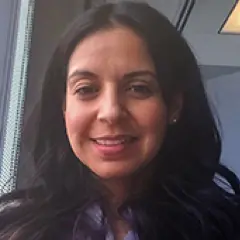
Clarisa Medina Poeliniz
PNPPast TEP grant recipient Clarisa Medina Poeliniz, PNP, of Rush University in Chicago, Illinois, USA, received a Trainee Travel Fund (TTF) grant in 2017. The grant enabled her to travel to the University of Western Australia and collaborate with research colleagues there.
During her work in Australia, Medina learned to analyze human milk (HM) specimens for sodium and potassium and participated in analysis including defatting HM and better understanding the process for lactose, citrate, and total protein. She also assisted with demographic data and statistical data analysis.
About her experience, she said:
“This travel award has had a direct influence on my future program of study. As a result of this new collaboration, my research now reflects an innovative and significant opportunity to further study the biological versus behavioral and motivational mechanisms that impact lactation outcomes in overweight and obese women.”
Thanks to TTF funding, Medina was able to synthesize her research into a poster submission and present her findings at a Federation of American Societies for Experimental Biology (FASEB) conference in Lisbon, Portugal.
Some of Medina’s TTF-enabled work is reflected in the study Human Milk Biomarkers of Secretory Activation in Breast Pump-Dependent Mothers of Premature Infants, published in Breastfeeding Medicine in 2018.
Access all of Medina’s research works on Google Scholar here.
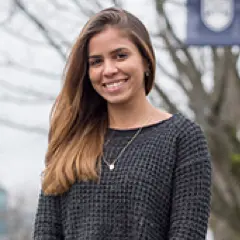
Larisse Melo
Past TEP grant recipient Larisse Melo, MSc, currently a Nutrition Research Technician and Sessional Lecturer at The University of British Columbia received a Trainee Travel Fund (TTF) grant in 2017. The grant enabled the native of Brazil to travel to the Western Human Nutrition Research Center (WHNRC) – one of six human nutrition centers funded by the United States Department of Agriculture/Agricultural Research Center (USDA/ARS) – located on the University of California, Davis campus in the USA. During her short-term work in California, Larisse completed laboratory safety training and learned the process for detecting different vitamin content in colostrum via ultraviolet detection, fluorescence detection, and mass spectrometry analysis. She also learned to detect iron, copper, and zinc in plasma by inductively coupled plasma atomic emission spectroscopy (ICP-AES).
About her experience, Larisse said:
“It is unquestionable that the TEP gave me a unique opportunity to deepen my knowledge in the study of vitamins in human milk in addition to growing my professional network in the field and enhancing my lab skills and self-confidence. Having the opportunity to be part of an international scientific network between professors in New Zealand, the United States, and Canada showed me how global the study of nutrition in human milk can be.”
Her TTF journey gave her a unique opportunity to deepen her knowledge in the study of vitamins in human milk, grow her professional network in the field, and enhance her lab skill and self-confidence as a result of the exchange experience.
Larisse's TTF-enabled work is reflected in the study Vitamin A nutritional status in high- and low-income postpartum women and its effect on colostrum and the requirements of the term newborn originally published in Portuguese in the Jornal de Pediatria.
Note: English-language PDF was Google translated from the original Portuguese.
Access all of Larisse’s research works through Google Scholar here.
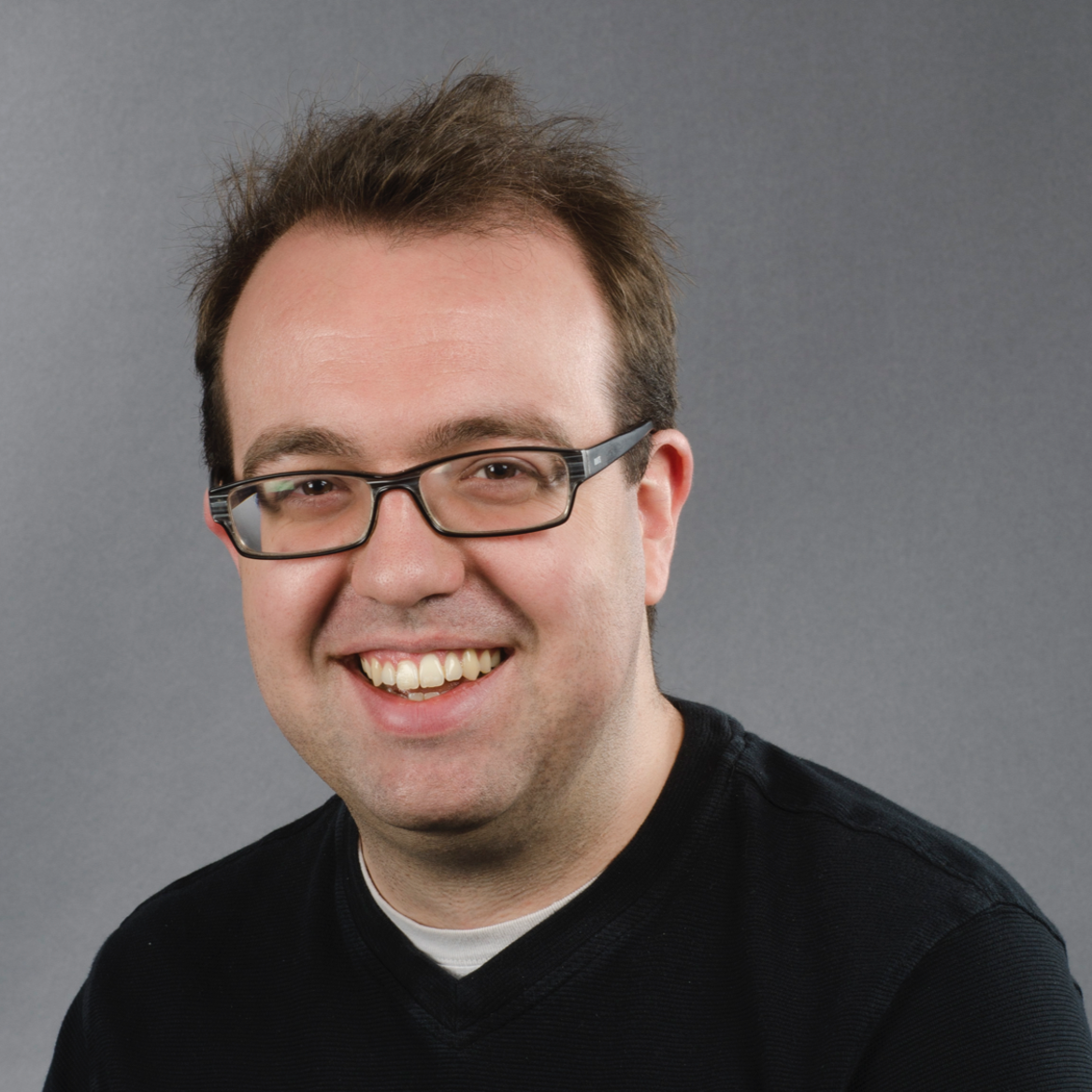
James Butcher
PhDJames Butcher, PhD, Trainee Bridge Fund recipient, is a trained biochemist from the University of Ottawa, where he studied iron regulation in the pathogen Campylobacter jejuni. James subsequently completed a Canadian Institutes for Health Research/Canadian Association for Gastroenterology postdoctoral fellowship in Inflammatory Bowl Disease at the Children's Hospital of Eastern Ontario and studied the role of the microbiota in this increasingly prevalent disease.
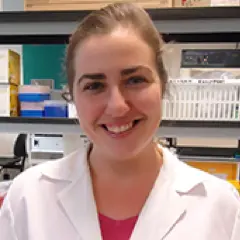
Alecia-Jane Twigger
PhD, BSc (Hons)Alecia-Jane Twigger, PhD, BSc (Hons), Trainee Bridge Fund recipient, is a postdoctoral research associate at the University of Cambridge, England, United Kingdom. The grant enabled her to further her cellular research in human lactation. During her project, which was completed at Helmholtz Zentrum München, Alecia-Jane learned to cultivate three-dimensional organoids from resting breast cells and process them for confocal imaging. She also learned to prepare and sort those cells using fluorescence activated cell sorting (FACS).
About her research, she said:
“Interestingly the FACS profiles of the milk cells are very different to the resting breast cells, despite their ability to generate organoids. Moving forward it will be important to determine novel surface markers for the milk cells that will enable us to discern the population of cells producing milk (lactocytes) and the cells that are able to generate organoids in culture.”
Through her TBF-enabled journey, she was able to significantly expand her research knowledge and laboratory proficiency. It is clear from her record of published studies that she has continued to utilize the skills she developed in further human lactation research.
Some of Alecia-Jane’s TBF-enabled work is reflected in these two studies:
Transcriptional changes in the mammary gland during lactation revealed by single cell sequencing of cells from human milk, obtained from bioRxiv
Access all of Alecia-Janes’s research works through Google Scholar here.
Potential Mentor Universities
Sometimes it is difficult to find a host and host university, especially if you are new in the field of breastfeeding and lactation research. Here is a list of departments around the globe which engage in breastfeeding and lactation research. It is an ongoing process to collect potential mentor universities, therefore the list is not complete.
